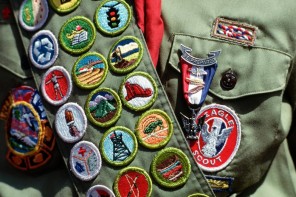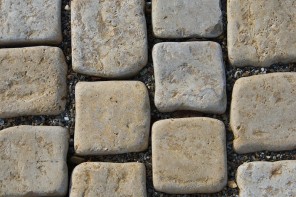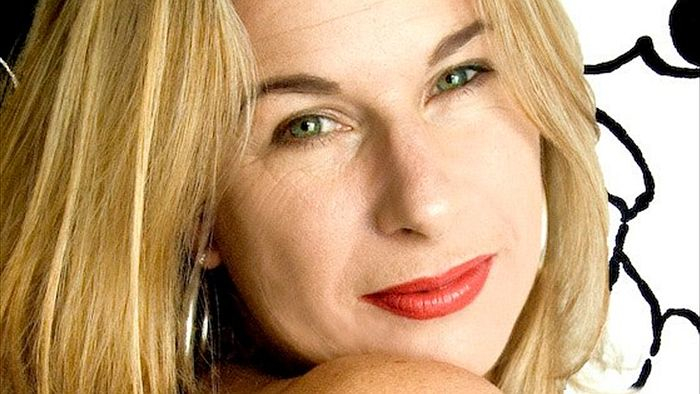 Family legends, there’s nothing like them. One that awed us as kids was that Nan, our little maternal grandmother, May Watson (nee Bray), was the youngest of
Family legends, there’s nothing like them. One that awed us as kids was that Nan, our little maternal grandmother, May Watson (nee Bray), was the youngest of
14 children, weighed 14 pounds when she was born in late-19th century Melbourne, and that after giving birth to her, her mother never walked again. We marvelled at the parallel neatness of those gargantuan figures – 14 and 14! That huge birth-weight! All those children!
That legend was true, more or less. May tipped the scales at 14 pounds, or 6.35 kilograms — one whole stone back in 1889 — and was the fourteenth child of her father, John Michael Bray. But she was only the eighth child of Bridget, second of John’s three wives. (Maria, mother of the first six children, had died aged 34.) After May’s elephantine delivery, her mother was poorly for 18 years — with 14 kids to raise. The third wife, Catherine, recalling the early deaths of her fecund predecessors, and with a house bursting with other women’s children, possibly counted herself lucky she was beyond child-bearing.
Growing up two generations later in the placid middle-class perpetual summer of Western Australia, we reckoned they made Angela’s Ashes seem like luxury living. Another legend was that the Brays were gallant soldiers — true in that May’s brothers Gerald and Frank, were killed in World War I, and that Major Frank Bray won the Military Cross. As part of this myth of family military service we understood that between siring duties, John Michael Bray was officer in command of Victoria Barracks, and that grandmother May was the first baby born there.
Well, her birth-site was correct. But research by my second-cousin Professor Richard Selleck, the historian, has thrown cold water on our view of John Michael Bray, who was Dick Selleck’s and my great-grandfather. Yes, he resided prominently at Victoria Barracks. But in command? Not quite. He was the Ordnance Storekeeper — and de facto manager of rats and drains.
An officer’s life in Melbourne was no picnic in the 1890s. In Victoria Barracks, Melbourne: A Social History, the author, Agnes Hannan, points out that sanitation, rats and mice were a constant anxiety. “The drains were clogged regularly with vegetable matter from the mess kitchen, and rats were a problem, having undermined the drains of the quarters occupied by Mr Bray, and causing them to sink. Thus the plaster ceilings in the officers’ quarters and staff offices were separating from the lathes and falling, causing a considerable morale problem, if not injury, to those below.”
A Major Hoad complained of the mouse plague: “They run over the bedclothes and every night do damage by eating clothes. They are now eating away the matting in the front room and have started to gnaw the piano and unless they can be stopped will probably soon destroy it.”
An angrier complaint came from the Officer Commanding the Victorian Mounted Rifles, Lieutenant-Colonel Tom Price. “My bedroom window is situated over the main drain, another over a privy and close to a drain from Mr Bray’s cottage… The so-called conveniences for the purpose of nature are an outrage on the lowest sense of decency; the basement is a dismal dark airless passage collecting all the fetid vapours that arise…
“Hundreds of tons of black oozy, spewy, slime and mud from the bottom of the Yarra are spread near the southernmost end of the barracks. I obtain the full odour from this awful mass of filth – in the same manner from the filling up of the swamp with putrid refuse I obtain a deathlike stench that pervades my quarters.
“Since I was ordered into habitation, a large number of factories have grown in proximity to the barracks. The air is thick with smoke…The viaduct from Spring to Flinders Street has been completed and throughout the night trains run frequently, with shrieking whistles, steamers in the river sound sirens and a deadly stench comes into my windows. Sleep is absolutely impossible…I have on several occasions drawn attention to the discomfort, but the horror has accelerated…The stinks and noise have grown and the suffering of my family has increased.”
From his photographs, you wouldn’t know that great-grandfather Bray, all walrus moustache and comfy stomach, had his work cut out for him looking after Victoria’s weaponry supplies — while trying to stop his fourteen kids from blocking the drains.




